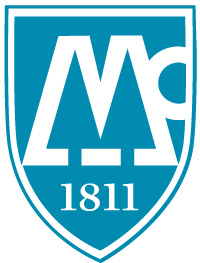 As part of a larger effort to revitalize the Lincoln Station area, the town is sponsoring a free workshop for Lincoln’s storefront business owners titled “Retail Best Practices: The Power of Presentation” on Wednesday, Jan. 9 from 8–9:30 a.m. at the Rural Land Foundation office at Lincoln Station (145 Lincoln Rd., second floor).
As part of a larger effort to revitalize the Lincoln Station area, the town is sponsoring a free workshop for Lincoln’s storefront business owners titled “Retail Best Practices: The Power of Presentation” on Wednesday, Jan. 9 from 8–9:30 a.m. at the Rural Land Foundation office at Lincoln Station (145 Lincoln Rd., second floor).
The session led by Christine Moynihan of Retail Visioning. Her program aims to help business owners improve the look and feel of their establishments as well as the customer experience and business planning and marketing in print and online. Attendees are also invited to participate in a private one-on-one free consultation with Moynihan in January or early February and could be eligible to receive a small grant to help implement recommendations made by the consultant.
For more information about the program or to register, contact Jennifer Burney, Director Planning and Land Use, at burneyj@lincolntown.org or 781-259-2684. Registration is not required but seating may be limited.
Funding for the workshop comes from a grant awarded to the South Lincoln Planning and Implementation Committee, which is steering several simultaneous projects aimed at revitalizing the area around Lincoln Station.
Other SLPIC projects
The MBTA subcommittee has recommended a list of improvements to the train station and commuter parking lots and expects to receive $500,000 from the state to pay for a study to design those improvements. The group is soliciting opinions as to whether the inbound and outbound train stops should be on the same side of the tracks, and whether non-Lincoln residents, or whether out-of-town commuters would be willing to pay for parking using a smartphone app. People can respond on the South Lincoln Revitalization Project website or by texting 781-702-3466.
Another SLPIC subcommittee is looking at zoning changes in South Lincoln that would encourage residential or mixed-use development in the area. The town hired Weston & Sampson more than a year ago to look at options for relocating and/or consolidating DPW operations on Lewis Street. Among the possibilities: moving the entire DPW to the transfer station, or co-locating some DPW functions on other land near Hanscom Field.
The study was expected to take only three months but is still not finished; the firm is expected to provide an update to SLPIC in January. “The work has taken longer due to the amount of parcels they had to review and apply the analysis to,” Burney said. “Unfortunately, projects often take longer than expected.”
Much of the study has consisted at examining and rating other possible DPW sites in town, as well as costs associated with any relocation. However, some North Lincoln residents have already voiced concerns about the idea of moving some or all of the DPW’s functions to the transfer station site.
With the help of grants, SLPIC’s Wayfinding Team has already installed wayfinding signs and a “pocket park” with a kiosk and bike repair station next to the railroad tracks. Among the items on the group’s to-do list for 2019: conducting a parking and sewer feasibility study, and seeking funds to spruce up the park-like area between Donelan’s and Lincoln Woods. A June 2017 report presented design ideas along with a cost estimate of $100,000.





